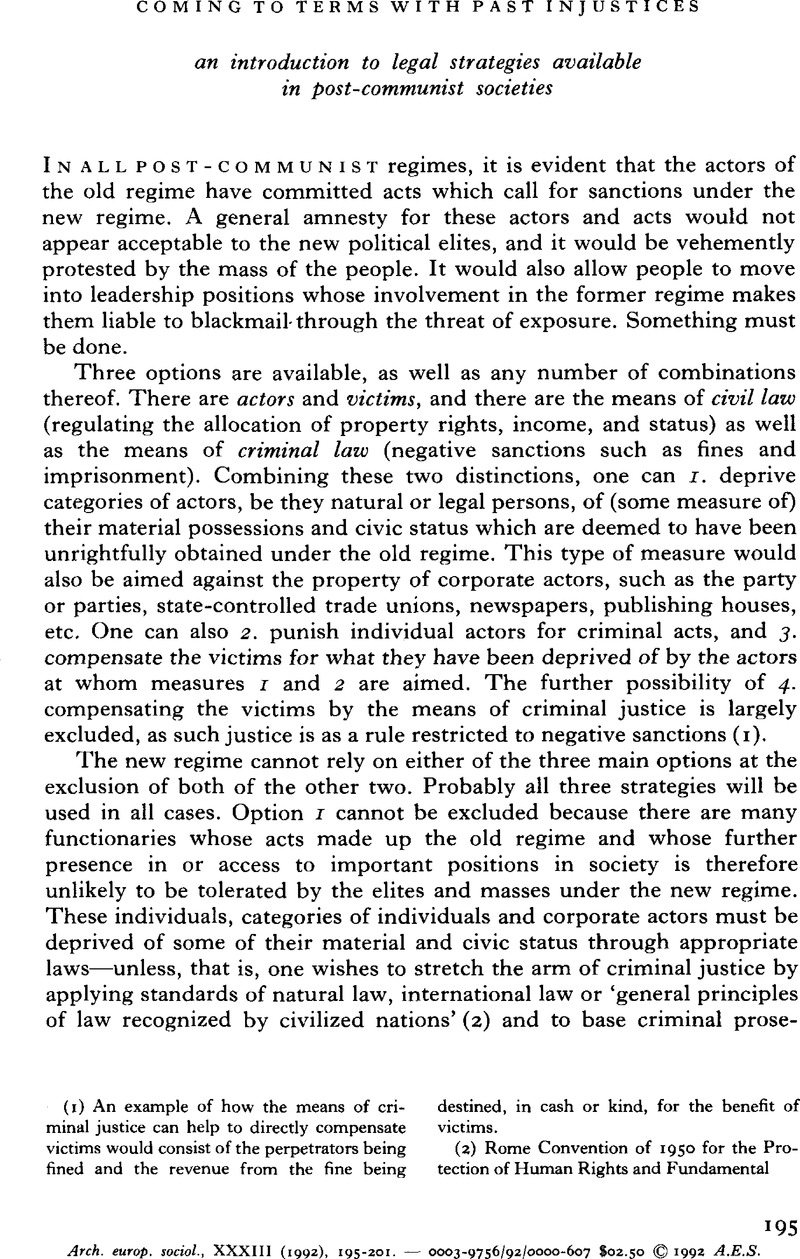Published online by Cambridge University Press: 28 July 2009

(1) An example of how the means of criminal justice can help to directly compensate victims would consist of the perpetrators being fined and the revenue from the fine being destined, in cash or kind, for the benefit of victims.
(2) Rome Convention of 1950 for the Protection of Human Rights and Fundamental Freedoms, Article 7, point 2. Extensive reliance on such bases for criminal prosecution would soon begin to discredit the new regime by making it vulnerable to the charge of ‘Stalinist methods of de-Stalinization’.
(3) For example, tenured professors and other state employees who have also been party activists and/or are working in ‘ideologically sensitive’ subject areas must undergo, in spite of their being tenured, a renewed examination of their professional competence.
(4) In the case of restitution, its costs may not be borne by ‘society as a whole’, but by specific groups and individuals who may feel victimized, such as tenants of residential houses or employees who lose their jobs. In the cases of retribution and deprivation, the revelation of acts that have been committed by agents of the old regime against ordinary citizens may give rise to outbursts of sentiments of hatred and despair, leading to either unlawful acts of private revenge or to numerous and serious psychic disturbances on the part of victims. Both of these types of secondary consequences are being anticipated in the current German debate (January 1992), and it has been proposed that psychotherapeutic services be made available to victims to deal with both of them.
(5) East Germany is special in this regard, as it can afford the replacement of large numbers of former officials and professionals, given the supply of such personnel of at least equal skills that can be imported from the West.
(6) Such rent increases amount, for instance, to roughly 500 per cent in the case of the former German Democratic Republic.